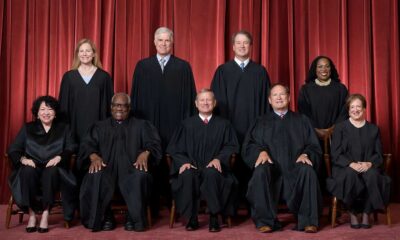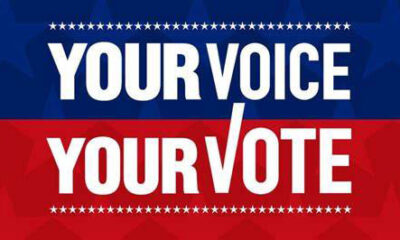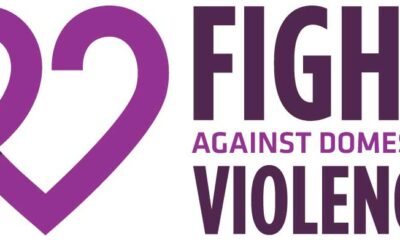Housing
Federal Monitor’s Oversight of NYCHA Not Renewed, Blasts the Housing Authority

By Mary Alice Miller
Another day, another crisis at the New York City Housing Authority.
The federal monitor appointed to oversee NYCHA issued a final 100-page report excoriating NYCHA, calling the housing authority’s management incompetent.
Bart Schwartz and Guidepost Solutions recently completed a five-year term as federal monitor of NYCHA. Schwartz applied for an additional five-year term but was replaced with the Jenner and Block law firm.
The federal monitor was first appointed under a consent decree prompted by the allegation that NYCHA knew it had a problem with lead-based paint and lied about it. HUD’s agreement with NYCHA did not give the monitor day-to-day management authority. Instead, the monitor was to work with NYCHA and its stakeholders to improve conditions and provide a safe and healthy quality of life for residents.
NYCHA has long been operating under a deficit that impedes its ability to effectively maintain and improve its infrastructure for the half a million residents living in its properties. Schwartz’s report claims lack of money is not the problem. Instead, the outgoing federal monitor charges that NYCHA and its governing board lack internal controls and external oversight.
The report points to well-known issues in NYCHA: Heat, elevators, lead-based paint, pests and vermin, safety and security, water, waste management, and corruption.
Some of the report’s criticisms are legitimate, but others seem petty.
One allegation is that the NYCHA board created several new subcommittees but the monitor claimed he did not know whether those subcommittees met or conducted business. The monitor could have attended NYCHA’s board meetings and pressed for the answer.
NYCHA livestreams its monthly board meetings on YouTube and NYCHA’s website. Executive members of the board publicly speak about new and ongoing projects. The meetings are open to the public and accept public commentary. Schwartz could have publicly demanded the information he sought.
Admittedly, NYCHA needs more oversight. But city, state, and federal governments all have a stake in the sprawling housing authority.
The New York City Council Committee on Public Housing, chaired by Councilman Chris Banks, has municipal jurisdiction over the NYCHA.
The NYC Council has filed a resolution calling upon the New York State Legislature to pass, and the governor to sign, legislation authorizing the NYC Council to oversee the activities of NYCHA. Adopted was a resolution calling on the state legislature and Dept. Of Housing and Urban Development to increase NYCHA accountability by auditing the responsiveness of NYCHA managers to tenants. In 2021, the City Council enacted a local law to amend the administrative law of NYC regarding NYCHA complaints and requests for service.
During the past five years, the City Council has held numerous oversight hearings on issues as diverse as investigating lead-based paint in NYCHA apartments, the well-being of seniors living in NYCHA, security systems, tenant participation funds, mold, permanent exclusion policy, Sandy recovery and resilience, recycling, elevator safety, domestic violence preference policy, violent crime in public housing, downsizing policies and practices, capital spending, winter preparedness, rent certification for seniors, chronic heat and hot water failures, summer preparedness, air quality, contracting and hiring processes, sanitation, Rental Assistance Demonstration conversions to Section 8, and bribery and extortion in micro-purchase contracts.
The federal government, through HUD, has provided millions for improvements at NYCHA during the past five years. HUD funding has been allocated to abate lead, improve safety and security, promote employment and self-sufficiency for public housing residents, and repair, renovate, and modernize roofs, plumbing, and electrical systems.
Permanent Affordability Commitment Together- Rental Assistance Demonstration (PACT-RAD) is a HUD initiative that allows NYCHA to convert Section 9 traditional public housing subsidy to Section 8 project-based vouchers. The goal is to generate funds for capital repairs of the aging housing development while ensuring permanent affordability and maintaining residents’ rights and public housing protections.
New York State also has an interest in the maintenance of NYCHA. The state has expanded the Emergency Rental Assistance Program by almost $400 million, bringing public housing resident eligibility to parity with other renters.
In addition, state legislators have long negotiated state funding for major capital repairs, such as boilers and safety and security improvements.
Despite the federal monitor’s report, NYCHA continues to serve its residents.
A recent initiative is the launch of an online portal to provide information about major capital projects. NYCHA’s Capital Projects & Needs Tracker is an interactive resource that has projects planned, ongoing, and completed since 2017. Information is available about locations, timelines, and progress of projects, budget and financing sources, and explanations of delays. Now, when funding is obtained for capital improvements at NYCHA, the project can be tracked.













